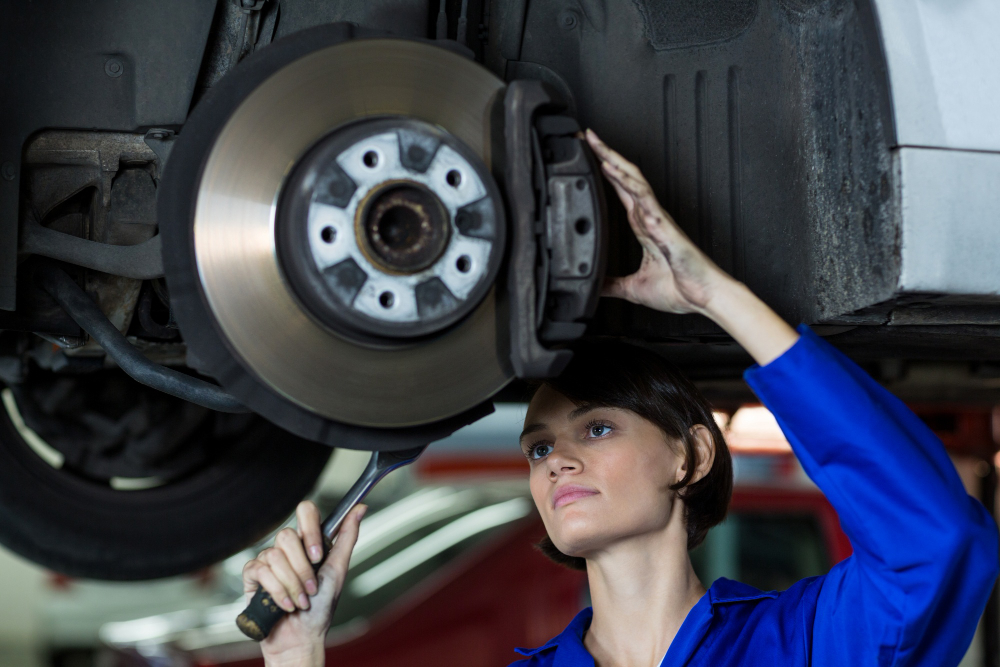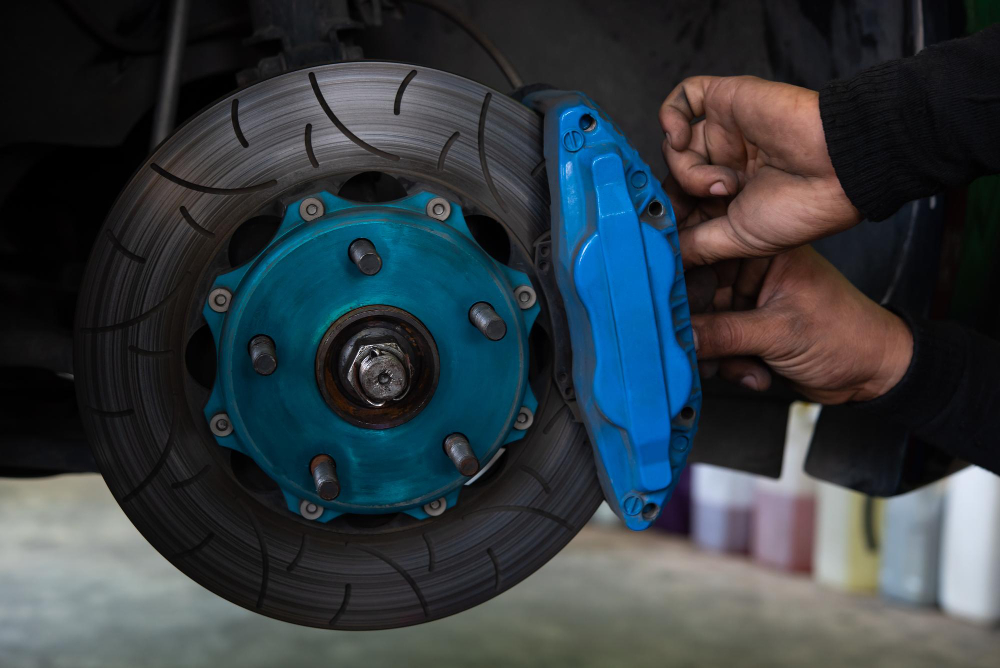Are you wondering why your brakes are not working? It can be a frustrating and potentially dangerous situation when your brakes fail to function properly. But fear not, as I am here to provide you with the answers and solutions you seek. In this article, we will delve into the possible reasons behind your brake issues and explore the troubleshooting tips and advice that can help you fix the problem.
There could be several explanations for why your brakes are not working as they should. It could be due to worn-out brake pads, a leak in the brake fluid, or even a malfunctioning brake caliper. By understanding the potential causes, you can take the necessary steps to address the problem and ensure your safety on the road.

So, if you are currently facing brake issues, don’t fret. Keep reading to discover the solutions that will help you get your brakes back in working order. With expert advice and guidance, you can tackle this problem head-on and regain the confidence you need to drive safely.
1. Common Reasons Why Your Brakes Fail
Brake failure can be a terrifying experience for any driver. Understanding the common reasons behind brake failure is crucial for maintaining your safety on the road.
Identifying the Culprits
There are several factors that can contribute to brake failure. One common reason is worn brake pads, which can reduce the friction needed to stop your vehicle. Another culprit could be a leak in the brake fluid, leading to a loss of hydraulic pressure. Additionally, a malfunctioning brake master cylinder or a faulty brake booster can also cause brakes to fail.
Taking Preventive Measures
To avoid brake failure, it is important to regularly inspect and maintain your brakes. This includes checking the brake fluid levels, replacing worn brake pads, and ensuring proper functioning of the master cylinder and brake booster. Regular servicing of your vehicle’s braking system can help prevent potential failures on the road.
What Should I Do When Brakes Stop Working?
When faced with the terrifying situation of brake failure, it is crucial to stay calm and take immediate action.
Assess the situation and communicate
Firstly, carefully evaluate the severity of the brake failure and assess any potential dangers on the road. If possible, use hazard lights or signals to alert other drivers of your situation.
Downshift and use the emergency brake
Next, downshift to lower gears to slow down the vehicle gradually. Simultaneously, engage the emergency brake to provide additional stopping power.
Look for a safe place to stop
Scan the surroundings for a safe spot to bring your vehicle to a halt. Look for open spaces, parking lots, or the shoulder of the road. Avoid abrupt turns or sudden maneuvers that could lead to loss of control.
Remember, maintaining a regular brake maintenance schedule and being aware of common brake failure causes can help prevent such emergencies. Stay prepared and vigilant on the road to ensure your safety and the safety of others.
How To Fix Brake Problems Effectively
Brake problems can be a major safety concern for any driver. When your brakes start to fail, it’s important to take immediate action to ensure your safety on the road. Here are some effective ways to fix brake problems:
1. Check for Fluid Leaks
Inspect your brake system for any signs of fluid leaks. Leaking brake fluid can lead to a loss of pressure, causing your brakes to fail. If you notice any leaks, it’s crucial to repair or replace the damaged components.
2. Replace Worn Brake Pads
Worn brake pads can diminish your braking power and make it harder to stop your vehicle. Regularly check the thickness of your brake pads and replace them if they are worn down. This simple maintenance task can greatly improve your braking performance.
3. Bleed the Brake System
Air bubbles in your brake lines can cause a spongy brake pedal and reduced braking efficiency. Bleeding the brake system removes air from the lines, restoring proper brake function. This should be done by a professional or someone with experience to ensure it is done correctly.
By following these steps, you can effectively address brake problems and ensure your safety on the road.
Discover Why Your Brakes Aren’t Working
Brakes are a critical component of any vehicle, ensuring your safety on the road. However, there are various reasons why brakes may fail, leading to potential accidents and injuries. It is essential to understand the underlying causes to address the issue effectively.
Identifying Brake Problems
One common reason for brake failure is worn brake pads, which can reduce their effectiveness. Another possible cause is a leak in the brake fluid, resulting in a loss of hydraulic pressure. Additionally, a malfunctioning brake master cylinder or a faulty brake line can also lead to brake failure.
Taking Immediate Action
When you notice your brakes aren’t working, it is crucial to act quickly. First, try pumping the brake pedal to build up pressure. If this doesn’t work, downshift to a lower gear and use the emergency brake to slow down. Finally, steer your vehicle to a safe location and seek professional assistance to diagnose and fix the problem.
Remember, understanding the reasons behind brake failure and taking immediate action can help prevent accidents and ensure your safety on the road.
What Should I Do When Brakes Fail?
Brake failure can be a terrifying experience, but it’s important to stay calm and take immediate action. First, gently pump the brake pedal to see if you can build up any pressure. If this doesn’t work, shift into a lower gear to slow down the vehicle. Look for an escape route and steer towards it, avoiding any obstacles in your path. If you have an emergency brake, slowly pull it up to bring the vehicle to a stop. Once you have safely stopped, turn on your hazard lights to alert other drivers. It is crucial to call for assistance and have your vehicle towed to a trusted mechanic for repairs. Remember, regular brake maintenance can help prevent brake failure, so make sure to have your brakes inspected and serviced regularly.
How To Fix Brake Issues Quickly
When faced with brake issues, it is crucial to act swiftly in order to ensure your safety on the road. There are several steps you can take to fix brake problems effectively and efficiently.
Firstly, it is important to identify the root cause of the issue. Common reasons for brake problems include worn brake pads, leaking brake fluid, or a malfunctioning brake caliper. Once you have identified the problem, you can then proceed to the next step.
Next, gather the necessary tools and equipment to fix the brake issue. This may include a wrench, brake fluid, brake pads, and a brake caliper tool. Having these items readily available will save you time and frustration during the repair process.
Finally, carefully follow the steps outlined in your vehicle’s manual or seek professional assistance if needed. It is crucial to properly install new brake pads, bleed the brake system if necessary, and ensure all components are functioning correctly.
By following these steps, you can quickly and effectively fix brake issues, allowing you to get back on the road safely.
Common Reasons Why Brakes Stop Working
Brakes are a vital component of any vehicle, ensuring the safety of both the driver and passengers. However, there are several common reasons why brakes may stop working, leading to potentially dangerous situations on the road. One of the main causes is worn brake pads, which can result in reduced braking power and longer stopping distances. Another common issue is brake fluid leakage, which can lead to a loss of hydraulic pressure and a complete brake failure. Additionally, brake rotors that are warped or worn out can cause vibrations and decreased braking performance. It is also important to mention that air in the brake lines can lead to a spongy brake pedal and reduced braking effectiveness. Regular maintenance and inspections are crucial to identify and address these issues promptly, ensuring the proper functioning of your brakes and the safety of everyone on the road.










